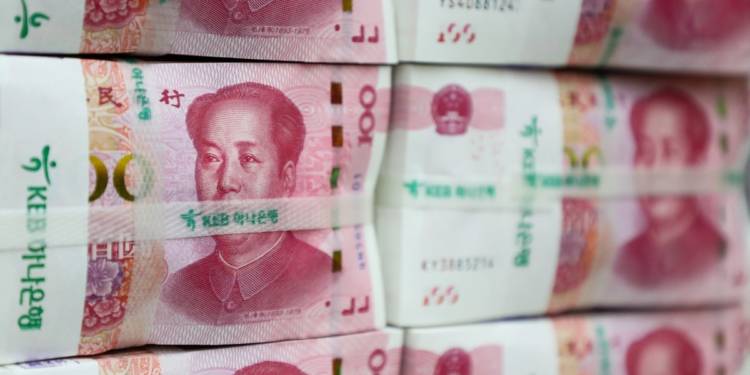Amid the unprecedented economic contraction and boycott of Chinese goods around the world, China is now witnessing an increasing number of bank runs. In the last few weeks, local banks in two Chinese provinces- Hebei and Shanxi- have been unable to pay back to customers as a large number of people gathered to withdraw their deposits.
The “rumours” about the collapse of the Chinese economy and its financial systems have started the rush to withdraw the deposits. Local governments and police in both provinces have pleaded to customers to not withdraw cash from banks on ‘unsubstantiated rumors’.
After a group of depositors rushed to withdraw cash, Baoding Bank in the Baoding city of Hebei province said that people “should not believe in or spread rumours … and should jointly be safeguarding good financial and social order.”
Yangquan commercial bank in the city of Yangquan of Shanxi province has also released a similar statement after the depositors rushed to a local branch in anticipation of bank’s inability to payback.
Local police have started arresting people who talk about the collapse of the Chinese economy and the failure of the banks to pay back the deposits. The 40 trillion dollars banking system- arguably the largest in the world- is under strain due to growing defaults from companies and business, and this has led to insecurity among the depositors.
The non-performing assets (NPAs) of China’s local banks have grown exponentially in the last few years as the artificial real estate boom went bust and several companies defaulted on loans.
The distrust in the Chinese financial system grew after the Coronavirus pandemic which led to the closing down of many businesses. The increasing momentum for the boycott of Chinese goods in countries like India, the United States- which constitute some of the largest markets for Chinese companies- have added fuel to the fire. The aggression of the Chinese Communist Party in the Himalayas and the South China Sea costs heavily to Chinese companies which are dependent on exports for the business.
Last year, the central government of China was forced to take control of local lenders in many provinces (just like RBI took over PMC bank) to sustain operations. The central government took over Baoshang Bank, a big lender in Province of Inner Mongolia after it failed to pay back to depositors; and also bailed out Bank of Jinzhou and Hengfeng Bank.
“What we’ve seen is that in many occasions, in cities and counties, there are some consolidations in small lenders,” said Steven Chan, executive director of equity research at Haitong International. “Especially the very weak ones,” he added.
Apart from local banks, shadow banks which are a 3 trillion dollars industry in China, have also started to collapse. A few days ago, Sichuan Trust, one of China’s largest shadow banks, apologized to investors for missing the deadline for payments on financial products.
“Affected by the global economic downturn, the new coronavirus outbreak, and the suspension of the issuance of trust products, some companies are unable to return funds on time. As a result, payments have not been distributed on time. Sichuan Trust sincerely apologises to you,” reads the statement published on the company’s website.
The Chinese companies have lost the market worth trillions of dollars due to Coronavirus pandemic induced lockdown and momentum against Chinese state and Chinese goods in the last few months. This means that these businesses would be unable to pay back and therefore prone to default, which will fuel distrust in banks leading to the panic withdrawal of deposits.
Therefore, the Chinese economy is set to suffer a big jolt in the next few days, shockwaves of which would be felt around the world. And as we have said before, China’s counterfeit culture and forced demand creation are to be blamed.























